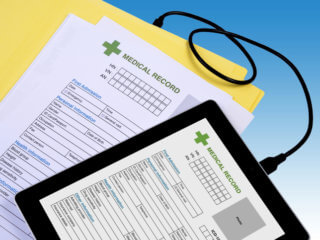The boom in digital healthcare market in Brazil
Brazil is one of the most important healthcare markets in South America. If the digital health market is taken into consideration, innovative IT-based healthcare solutions are there. Electronic data recording solution and mobile health solutions are available in Brazil that account for nearly 28% of the Brazilian healthcare market. The digital health market has greatly boomed because of the increasing rate of elderly population. It is expected that the jump in the elderly population will be from 20 million in 2010 to 65 million in 2050
Current state of health care system in Brazil
In Brazil, the health care system comprises of public, private and non-government organization health care system. The ministry of health care is responsible for the public health care services through the government-funded hospitals and clinics. In 2010, 61.7 billion US dollar budget was allotted and since then there is a continuous increase in the healthcare budget in the consecutive years. Good quality health care services can be accessed for free by any legal citizen by showing their Brazilian ID card.
Approximately 70% of the population uses public health care system in Brazil. The free public health care services are available for the foreign residents as well.
The public sector accounts for 42-58 percent of the total healthcare budget allocated by the Federal system in the country.
Brazilian public sector hospitals have all the modern facilities and latest medical technologies for providing high-quality medical services. But as the health care services are for free in Brazil so the government funded hospitals are generally crowded. Hence, people who are able to afford the high medical expenses consider private healthcare services in Brazil.
The average cost of medical expenses in Brazil is comparatively lower than the US which has led to the increase in the medical tourism industry in this country. The healthcare expenses are expected to reach $580 billion by 2020, especially for the people of age 60 years.
How are digital health startups redefining health care in Brazil?
There is no secret that on an average, 75% people have access to Unified Health System in Brazil. To improve the situation of health care system in Brazil, the people are becoming dependent upon the technology-driven health care services. Several healthcare institutions in Brazil are suggesting that technological innovations in medical and healthcare services greatly help in improving the quality of healthcare. The growing demand for advanced healthcare services has led to the emergence of the digital healthcare market. About 68% of the total Brazilian population has access to digital healthcare services.
Wearable devices and mHealth apps have not completely replaced the medications but they have partially reduced the need for medications.
Digital therapeutic wearable and apps play an important role in monitoring the health of the patient. Monitoring of blood pressure, blood sugar level, cholesterol, and pulse rate helps the patients to get the treatments at the right time. The leading tech giants, Apple and Samsung are also investing in the digital healthcare market. Venture Capital Funds is also inviting the investors for making investments in the telehealthcare market in Brazil.
Boa Consulta, Medicinia, Prontmed and Help Saúde are some of the top startups in Brazil that are working in healthcare domain. Plataforma Saúde is a Brazilian startup that provides the mobile solutions for accessing health care services quickly. There are other startups as well like Livox which is used by around 10,000 users in Brazil. Till now, the company has sold $3 million worth of Android software.
- Livox: To provide the assistance to the disabled people in Brazil, this Brazilian startup is working. Livox app is thoroughly used by 10,000 users in Brazil. This app provides speech assistance to the people with speech-related disability. This app is available in more than 25 different languages. Livox provides for other disability assistance devices for autism, stroke, cerebral palsy and cancer. Till now, the company has sold $3 million worth of Android software.
- Boa Consulta: In order to make it easier for the patients to schedule their appointment with the doctors, Boa Consulta is offering a great healthcare app that is currently being used by more than 20,000 users. This startup’s services are helpful in finding out the healthcare specialists, checking reviews and book your appointments. This startup is highly active in São Paulo and Rio de Janeiro.
- Telefonica: This is a Spain based telecom company that has made its entry in the healthcare industry in Brazil. It helps in providing the remote patient management services for providing better healthcare services.
Telemedicine needs in Brazil
The deployment of National Telehealth Program helps in reducing the barriers to the healthcare services. Tele-assistance is provided through video-conferencing and online chatting. High-value medical information can be access through virtual consultation portals which help in improving your health at the affordable rates.
Telehealth and telemedicine facilities save the patients from going to the hospitals and clinics which are convenient as well as cost-effective.
As a result of accessibility to telemedicine, a lot of medical students have got the benefit of online learning through tele-education. Many universities and Brazilian medical colleges are using this kind of technology for enhancing the future of digital healthcare market in Brazil.
Funding flowing in the digital health industry in Brazil
The cost of the digital healthcare market was more than USD 843 million in 2015. And, it is anticipated to grow at least 28% in the upcoming years. The digital healthcare industry has a market share of about 47% of the total health care in the area in Brazil. Various global research institutions have their eyes on the funding inflows in Brazilian digital health industry.
Berrini Ventures and Bossa Nova Investimentos are the leading investors in the digital healthcare industry in Brazil. Dr Consulta which has its market funding of about $25.9 million in Brazilian Market is also a leader. Riverwood Capital has invested about $30 million in Pixeon medical system. Pixeon is software Development Company is now a major player in the healthcare management digital solution.
Future prognosis for Brazilian health technology market
Considering the above-mentioned statistics in the digital healthcare industry in Brazil, it can be concluded that there is a bright scope for the health technology-driven market in Brazil. Thanks to the internet penetration in Brazil which has made it in the list of top five countries in terms of internet usage. The optimistic market of health technology in Brazil is expected to grow 5.8% of CGAR during 2016-2020.
It is due to the prevalence of several types of diseases like hypertension, diabetes, high blood pressure, obesity etc. in this Latin American country, it calls for the variety of digital healthcare solutions.
Also, the increased awareness about the digital health technologies, people are inclined towards the use of healthcare apps and wearable. Thus, there is a high demand for the digital therapeutic solutions among the patients.
Various mergers and acquisitions have taken place in 2015 and it has been continued in the later years as well. Investors from all over the world are now exploring the Brazilian health technology market. Recently, Lupin, India based company, has acquired a Brazilian brand of OTC maker and generics manufacturer Medquímica Indústria Farmacêutica. Bio Architecture Lab, a US based company offering application of synthetic biology has also explored the Brazilian market with the funding capital of $6 million.
Apart from the efforts by the pharmaceutical companies, tech companies and potential investors, the government is also making the considerable efforts for the same. For the very first time, the Brazilian government has allowed foreign companies to invest in the private healthcare market. This has greatly helped in boosting the much-required funds for progressing in this sector.
Image credit: www.istockphoto.com

















